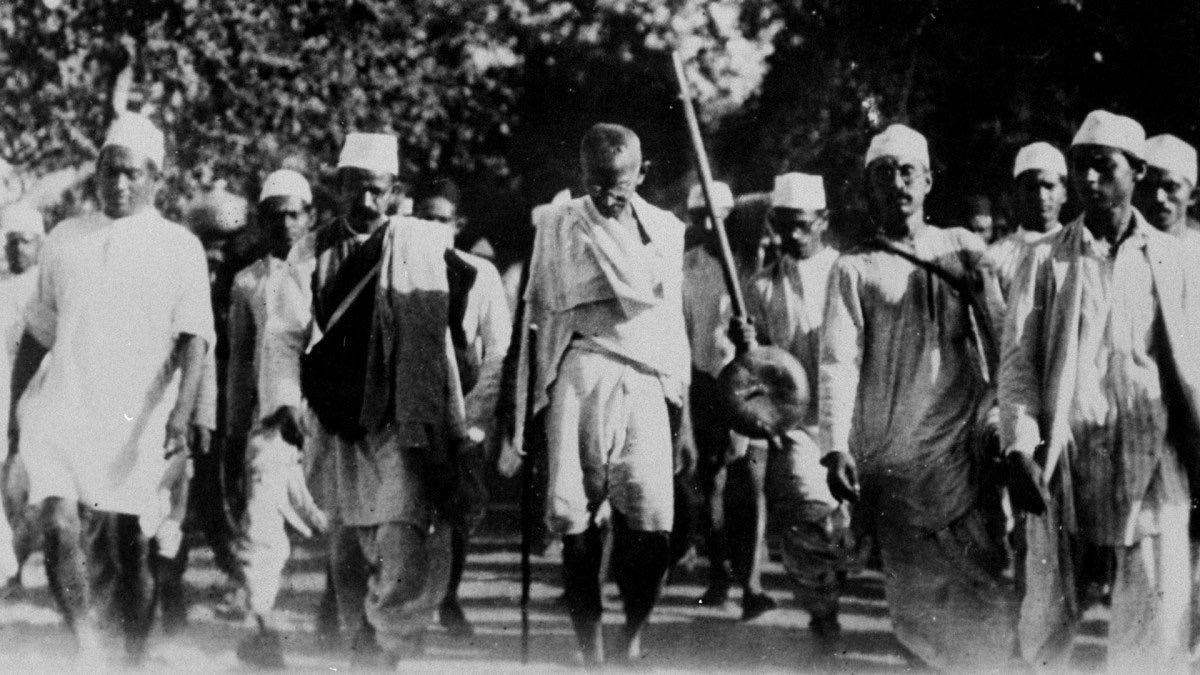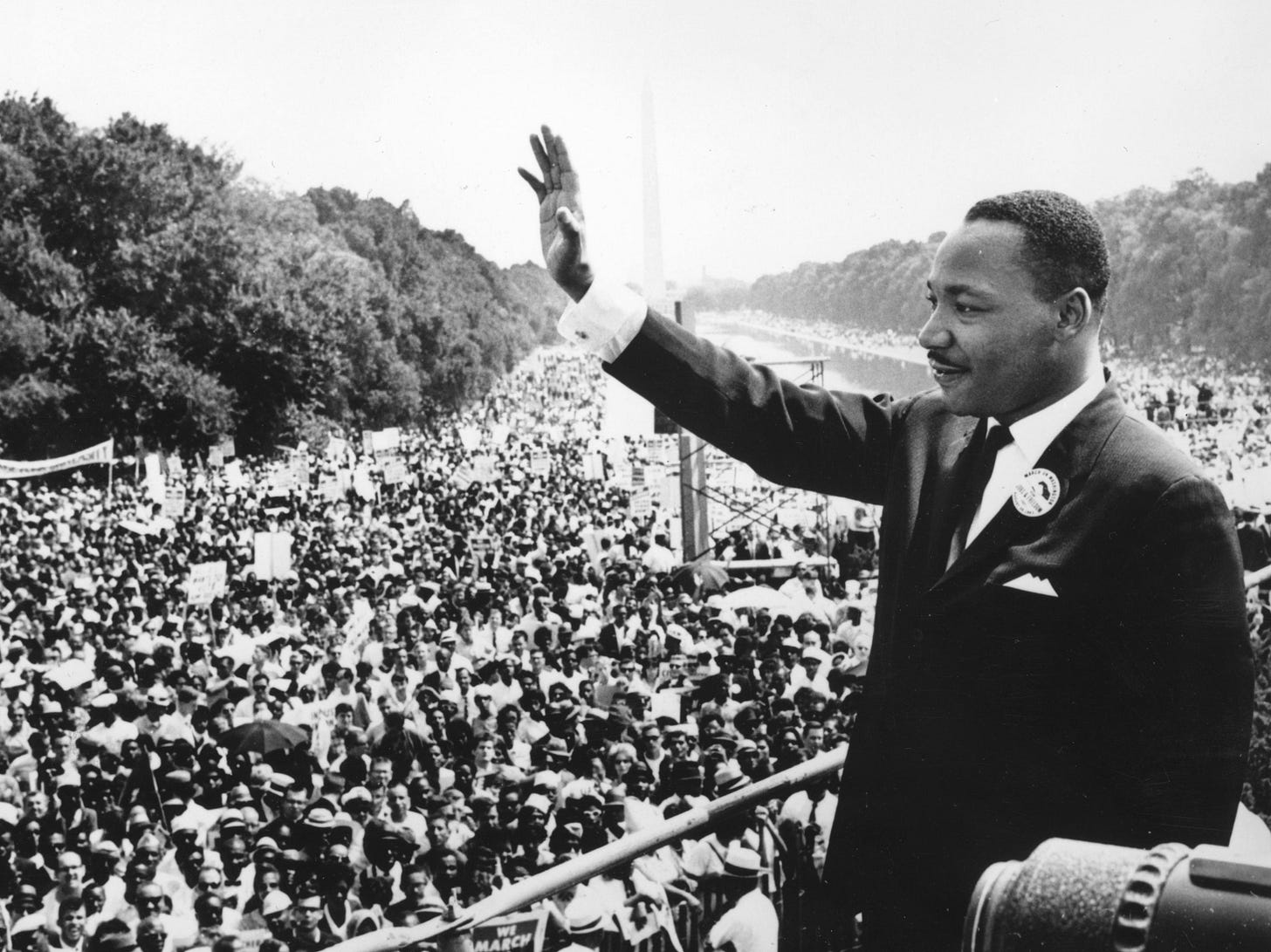Stand Up and Speak Everything
Silence isn’t playing it safe, it’s capitulation.
The concept of Parrhesia originates from ancient Greek, meaning "to speak everything."
Parrhesia was a key element of Athenian democracy and a favorite technique of the playwright Euripides in the fifth century B.C., whose works often addressed social, political, and moral issues that challenged the established powers.
Parrhesia meant that speaking the truth was a moral obligation even when it was done at great personal risk.
In 1919, Mahatma Gandhi coined the term Satyāgraha, meaning "holding firmly to truth.” It was the central principle of his nonviolent civil resistance movement aimed at gaining independence from British rule. His protests spanned from 1915 until India’s independence in 1947, marking a 32-year struggle during which Gandhi never gave in and never gave up.
We now call it “Speaking Truth to Power.”
Speaking truth to power has evolved into a rallying cry for social justice movements worldwide, emphasizing the need to challenge oppressive systems and protest peacefully for justice. It’s always a risk, but it’s always essential.
Dictators and despots rely on instilling a deep fear of retribution and punishment in their nation's citizens so that the public slips into quiet despair. But silence is capitulation.
This is why I write 'Dispatches from the Homefront’.
“People will never fight for your freedom if you have not given evidence that you are prepared to fight for it yourself.” Bayard Rustin
Bayard Rustin was an American political activist and prominent leader in the civil rights movement, credited with popularizing the phrase "speak truth to power."
Rustin was the principal organizer of the 1963 March on Washington for Jobs and Freedom, a massive protest that drew some 250,000 people to the Lincoln Memorial in Washington, D.C.
It was at this protest that Martin Luther King Jr. delivered his speech, “I Have a Dream.”
With dictatorship now on the immediate horizon of our nation, we must gather together and speak truth to power at every turn. We must stand for the foundational principles of our nation, which hold that liberty and justice are not for a privileged few but for all of us. This is the promise of America that underpins our democracy.
In the words of Dr. Martin Luther King at the March for Jobs and Freedom in 1963, “When we allow freedom to ring, when we let it ring from every village and every hamlet, from every state and every city, we will be able to speed up that day when all of God’s children, black men and white men, Jews and Gentiles, Protestants and Catholics, will be able to join hands and sing in the words of the old Negro spiritual: “Free at last! Free at last! Thank God Almighty, we are free at last!”
On June 6, the anniversary of D-Day, veterans from across the nation will gather at the Washington Monument for a “Unite for Veterans, Unite for America” rally to stand in support of their rights and benefits.
On June 14, Flag Day, activists across the country will come together for “No Kings Day,” with marches, rallies, and demonstrations in counterpoint to President Trump’s authoritarian style military parade for his birthday, to reject corrupt, authoritarian politics in the United States.
June 14th is also the U.S. Army’s birthday — a day that marks when Americans first organized to stand up to a king.
Resources:
The Historical Context of Euripides’ Tragedies and Their Relevance ~ Greek History Hub
Bringing Down an Empire: Gandhi and Civil Disobedience ~ Teach Democracy
D-Day 2025: March on the Nation’s Capital ~ Perspectives
Rally with American Veterans ~ Veterans for Unity
Veterans Organizing 'Call to Action' Rally on D-Day Anniversary in Nation's Capitol ~ Military.com
No King’s Day ~ Indivisible
50 Protests. 50 States.1 Movement. ~ 50501
The Pandemic of Tyranny ~ Perspectives
March on Washington ~ History.com








We should all follow these ancient ideas that still resonate today. Speak truth to power; show that you're willing to fight for your rights; and, remember, silence is capitulation.
Thanks for this timely and important reminder, Brad.
In case you haven't seen it, this morning's NYTimes has a great full page piece about the renovation of the Hotel del. Best, Julia